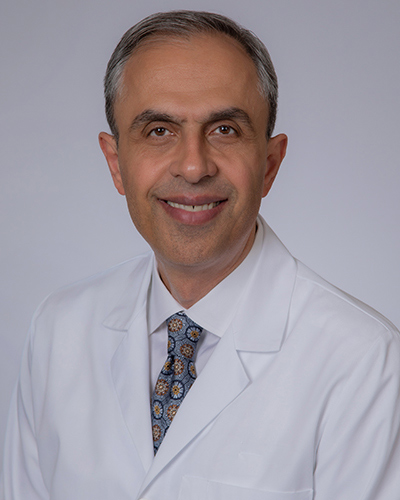Types of CNS Lymphoma


Central Nervous System (CNS) lymphoma is a rare type of cancer that occurs when lymphocytes, a kind of white blood cell, form a tumor in the brain, spinal cord, or eyes. These lymphocytes are part of the immune system and help your body fight infection.
When they become cancerous, they can affect the normal function of the CNS. There are two main types of CNS lymphoma: primary and secondary. This article will discuss the key differences between the two main forms of CNS lymphoma, allowing you to make more informed decisions in your care.
Primary CNS Lymphoma (PCNSL)
Primary CNS lymphoma starts directly in the CNS. It doesn't come from another part of the body, which is why it's called "primary."
This type of lymphoma most commonly affects the brain but can also involve the spinal cord or eyes. It's more likely to occur in people with weakened immune systems, such as those with HIV/AIDS or those taking immunosuppressive drugs after organ transplants.
Symptoms of PCNSL can vary depending on the tumor's location but often include headaches, confusion, memory problems, seizures, and weakness in parts of the body. Because these symptoms can be similar to other neurological conditions, PCNSL can be challenging to diagnose.
Secondary CNS Lymphoma (SCNSL)
Secondary CNS lymphoma (SCNSL) is when a lymphoma that started elsewhere in the body spreads to the CNS. This spread can happen with any type of lymphoma, but it's more common with certain aggressive types.
Symptoms of SCNSL are similar to those of PCNSL and can include neurological changes, such as difficulty with coordination or speech, changes in vision, and headaches.
Why should you have your surgery with Dr. Cohen?
Dr. Cohen
- 7,500+ specialized surgeries performed by your chosen surgeon
- More personalized care
- Extensive experience = higher success rate and quicker recovery times
Major Health Centers
- No control over choosing the surgeon caring for you
- One-size-fits-all care
- Less specialization
For more reasons, please click here.
Diagnosis of CNS Lymphoma
Diagnosing CNS lymphoma begins when a patient experiences symptoms such as persistent headaches, vision problems, or neurological deficits. Consulting a healthcare professional promptly ensures that any concerning signs are thoroughly evaluated.
Doctors typically use advanced imaging techniques like MRI or CT scans to visualize the brain and spinal cord for abnormal masses or lesions. These imaging studies provide detailed pictures that help identify areas that may require further investigation.
A definitive diagnosis often requires a biopsy, where a small tissue sample from the suspected area is removed and examined under a microscope. This procedure can be performed through minimally invasive methods guided by imaging to ensure accuracy and safety.
Additional tests, such as a lumbar puncture to analyze cerebrospinal fluid or blood tests, may be conducted to assess the extent of the lymphoma and rule out its presence elsewhere in the body. These comprehensive diagnostic steps are essential for developing an effective treatment plan tailored to the patient’s specific condition.
Treatment Options for CNS Lymphoma
Chemotherapy is the cornerstone of treatment for CNS lymphoma, using powerful medications to target and eliminate cancerous cells within the central nervous system. High-dose methotrexate is commonly employed because it effectively penetrates the brain and spinal cord to reach the tumor sites.
Radiation therapy is another key part of treatment, utilizing high-energy rays to shrink tumors and relieve symptoms by using special protocols to irradiate the brain and/or spinal cord. This therapy is often combined with chemotherapy to enhance its effectiveness and improve overall outcomes.
In certain cases, surgical intervention may be necessary to remove a tumor, especially if it is causing significant pressure or neurological issues. While surgery is not always required, it can be beneficial for diagnosing the lymphoma through a biopsy or for alleviating immediate symptoms.
Neurosurgeons may also place a device known as an Ommaya reservoir. This device provides a reliable way to deliver chemotherapy directly into the cerebrospinal fluid, ensuring that medications reach the central nervous system effectively.
In addition to being a key therapy for delivering medications, this device also allows for easy access to withdraw fluid for testing, helping to monitor the treatment’s progress and adjust therapies as needed. For patients with aggressive or recurrent CNS lymphoma, a stem cell transplant may be recommended to restore healthy bone marrow after intensive chemotherapy.
Additionally, emerging treatments like immunotherapy and targeted therapies are being explored to provide more personalized and effective options for managing CNS lymphoma.
Prognosis and Outlook
The outlook for CNS lymphoma varies depending on several factors, including the type of lymphoma, the patient's overall health, and how well the cancer responds to treatment. Advances in treatment have improved the prognosis for many patients, but CNS lymphoma remains a challenging condition to treat.
Living with CNS Lymphoma
Being diagnosed with CNS lymphoma can be overwhelming. It's important to have a strong support system and to communicate openly with your healthcare team about your treatment options and any side effects you experience.
Support groups and counseling can also be beneficial for you and your loved ones.
CNS lymphoma is a serious condition, but understanding the types and treatment options can help you navigate your journey with this disease. Always consult with your healthcare team for the most personalized and up-to-date information regarding your health.
Key Takeaways
- CNS lymphoma has two types: Primary, which starts in the brain or spinal cord, and Secondary, which spreads to the CNS from other parts of the body.
- Primary CNS lymphoma (PCNSL) is more common in people with weakened immune systems, while Secondary CNS lymphoma (SCNSL) comes from aggressive cancers that spread to the central nervous system.
- Common symptoms include persistent headaches, confusion, seizures, clear fluid draining from the nose or ears, and difficulty with coordination or speech.
- Diagnosing CNS lymphoma involves using MRI or CT scans, performing biopsies, and conducting lumbar punctures to accurately identify the cancer.
- Treatment options include chemotherapy, radiation therapy, surgery, and sometimes placing an Ommaya reservoir, which can lead to positive outcomes based on individual cases.











